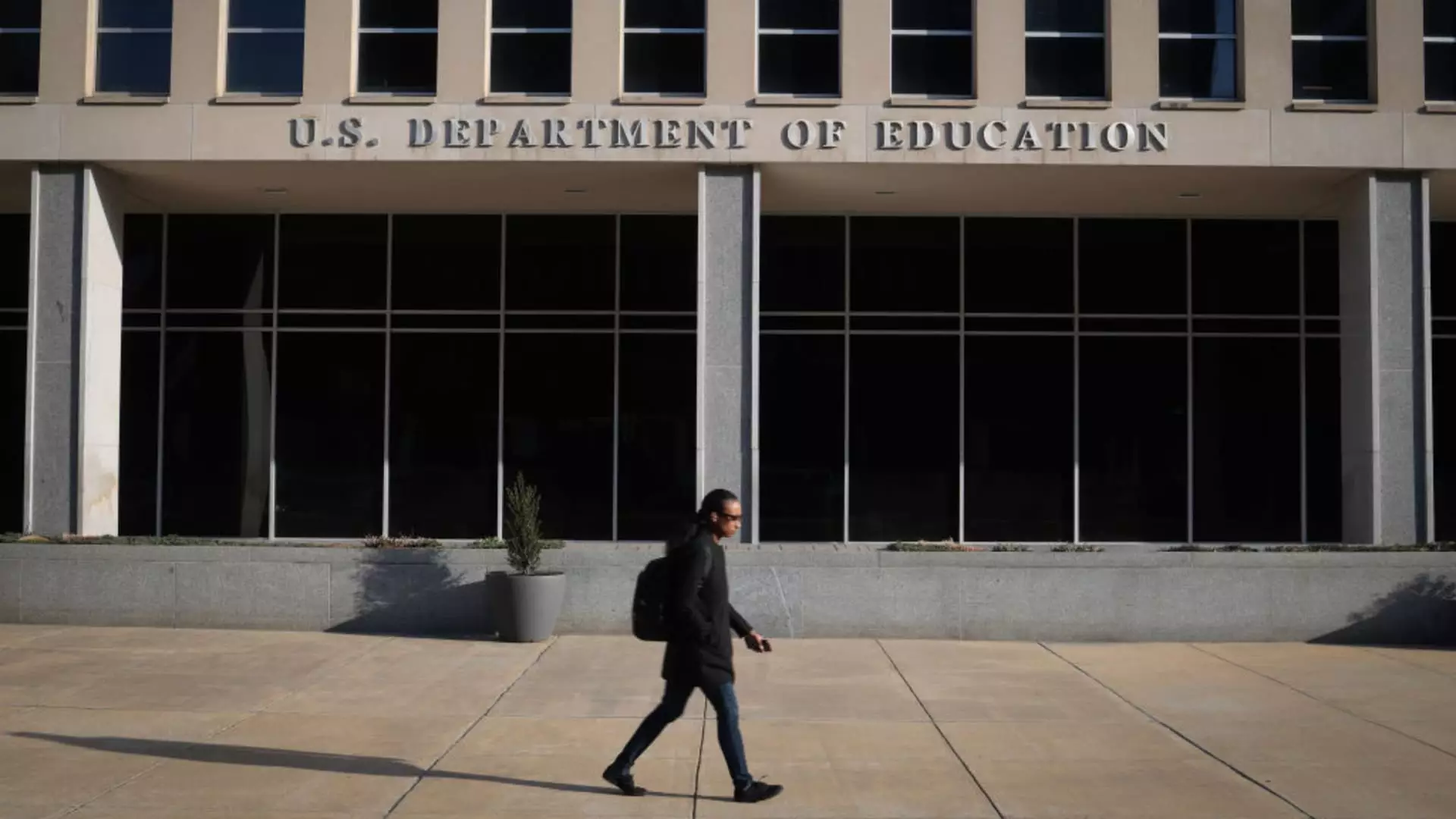The recent lawsuit brought forth by the American Federation of Teachers (AFT) against the U.S. Department of Education highlights a striking failure in compassion and clarity in financial governance. The Trump administration’s abrupt decision to shutter access to affordable income-driven repayment (IDR) plans for millions of student loan borrowers is not just a bureaucratic misstep; it portrays a deeper systemic neglect toward the financial well-being of working-class Americans. When the government retreats from financial safety nets that many depend on, it invites catastrophe into the lives of countless borrowers already strained by increasing financial burdens.
Mismanagement of an Educational Lifeline
Since their inception in the 1990s, IDR plans have been a beacon of hope for millions, allowing borrowers to manage their debts in a way that aligns payment requirements with their income. By constraining payments and potentially forgiving remaining balances after 20 to 25 years, these plans serve a vital role in transforming student debt from an unmanageable burden into a pathway for opportunity. Over 12 million borrowers relying on these plans, as stated by higher education expert Mark Kantrowitz, are now left navigating a treacherous landscape where their repayment options have been curtailed without any consideration for their wellbeing. The perception that working-class citizens should shoulder the burden of a purportedly “frozen” loan system mirrors a grim political calculus devoid of empathy.
Crisis Ignored Amid Political Games
The Education Department’s rationale for closing IDR plan applications—citing a recent court order—illustrates a glaring misinterpretation of the judicial ruling while avoiding the real crisis at hand. This mismanagement fundamentally undermines the essence of public service as it prioritizes political maneuvering over practical solutions. Students today don’t need a political chess game; they need actionable relief and a commitment to maintaining the structures designed for their aid. As Mike Pierce from the Student Borrower Protection Center aptly pointed out, borrowers are “desperate for help.” Ignoring their plight under the guise of legal adherence is not only an abdication of responsibility—it is a dereliction of moral duty.
The Ripple Effect of Financial Desperation
The fallout from Trump’s actions is reverberating throughout the economy as students struggle with surging monthly payments while trying to maintain their daily lives. Borrowers at risk of financial instability contribute to a bleak economic landscape; their struggles become a shared burden and ripple out into broader society. Lending decisions, housing applications, and even family planning can all be affected by the shadows of student loan debt. When the government refuses to instigate aid, it not only stifles individual potential but endangers the economic fabric of the nation.
A Call for Compassionate Policy Making
Moving forward, it is imperative for policymakers to recognize the inherent worth of education not merely as a commodity, but as a fundamental right deserving thoughtful consideration. The AFT’s legal battle serves as a reminder that the people’s interests must always prevail over political stratagems. It is time for bipartisan efforts to rebuild the accessibility of IDR plans and foster a system that not only acknowledges the plight of borrowers but actively works to alleviate their burdens. This is a necessary step toward demonstrating that the American dream is available not just to the privileged few but to all who dare to aspire.

Leave a Reply